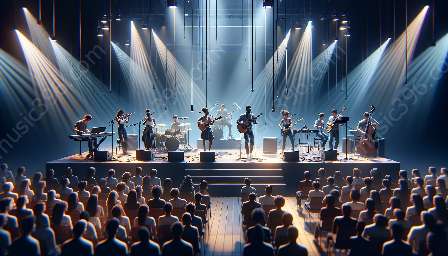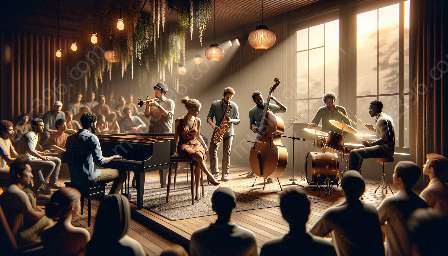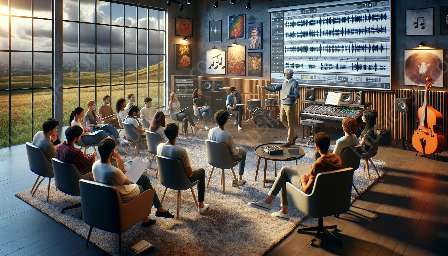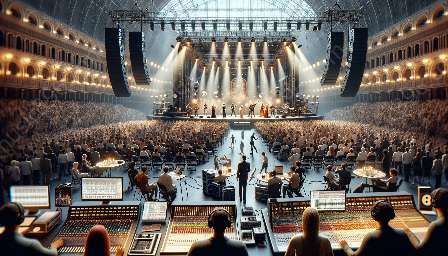Music band performances have a profound impact on the psychological well-being of individuals. The experience of live music is inherently emotional and can greatly influence our cognitive, emotional, and social behaviors. In this topic cluster, we will delve into the fascinating realm of music group performances and their psychological effects, exploring how such performances influence our emotions, behavior, and mental health.
The Emotional Impact of Music Band Performances
One of the most captivating elements of music band performances is their ability to evoke a wide range of emotions. The combination of live music, the energy of the crowd, and the synergy of the band members creates a unique emotional experience for the audience. Music has the power to uplift, calm, excite, or even bring tears to our eyes. The emotional impact of music band performances can be attributed to the synchronization of rhythm, melody, and lyrics, which resonate with our innermost feelings.
Cognitive Aspects of Music Group Performances
Music band performances also have profound cognitive effects. As we listen to a live music band, our brains process the complex auditory stimuli, deciphering melodies, rhythms, and harmonies. This cognitive engagement enhances our focus and mental alertness, providing a stimulating experience. Furthermore, the unpredictability and spontaneity of live performances challenge our cognitive abilities, keeping our minds actively engaged and responsive.
Social Dynamics and Music Performance
Attending a music band performance is often a collective experience, fostering social interactions and connections. The shared enjoyment of live music promotes a sense of unity and belonging among the audience. Additionally, the interaction between band members on stage creates a captivating social dynamic, portraying teamwork, cooperation, and mutual creativity. These social interactions contribute to a sense of community and can positively impact social behaviors and relationships.
The Role of Music Band Performances in Mental Health
Research has shown that music band performances can significantly affect mental health. Live music has been associated with stress reduction, mood enhancement, and alleviation of symptoms related to anxiety and depression. The immersive nature of music group performances provides an avenue for emotional expression and release, offering therapeutic benefits to individuals. Moreover, the sense of connection and shared experience during live performances can reduce feelings of loneliness and isolation, contributing to overall mental well-being.
Implications for Music Therapy and Health Care
Understanding the psychological effects of music band performances has implications for music therapy and health care. The emotional, cognitive, and social dimensions of live music can be leveraged in therapeutic settings to support individuals with various mental health challenges. Music group performances, whether attending concerts or participating in musical activities, can be integrated into treatment plans to promote emotional regulation, cognitive stimulation, and social engagement for individuals undergoing therapy or rehabilitation.
The Future of Music Band Performances and Psychology
As technology continues to evolve, so do music band performances. Virtual and augmented reality experiences are redefining the way audiences engage with live music, presenting new opportunities for psychological exploration. The fusion of music, technology, and psychology will likely shape the future of music band performances, offering innovative ways to understand and enhance the psychological effects of music.















































